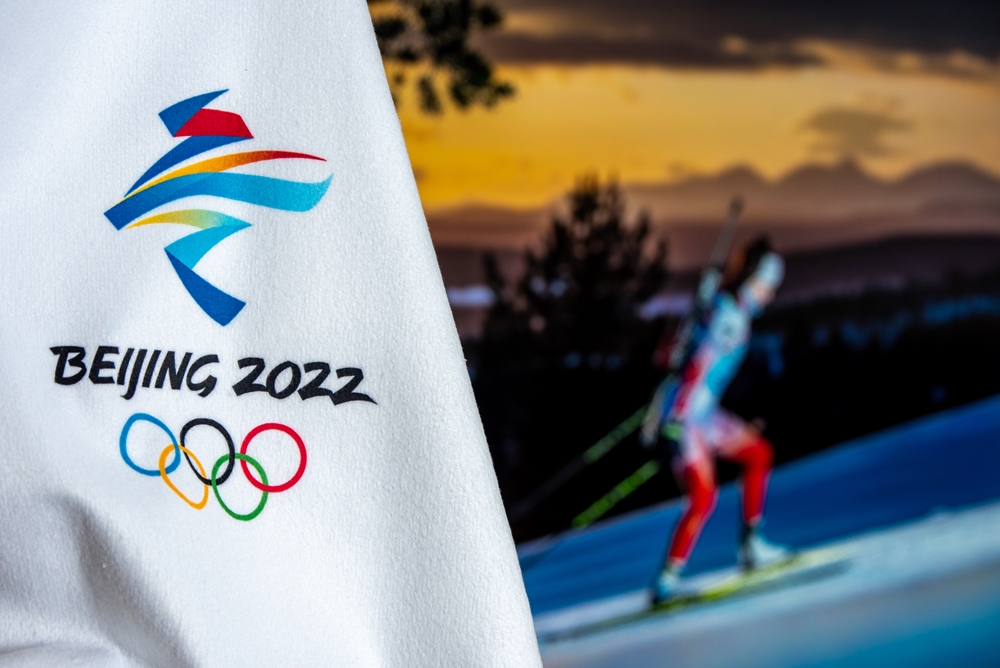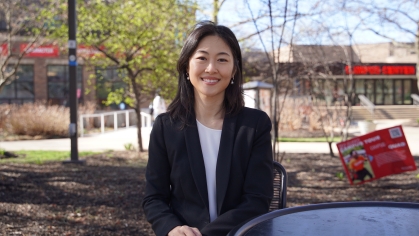Olympics a World Stage to Make Political Statements, says Rutgers–Camden Researcher
Wolfe says Cold War-era tactics at play once again.
As the world watched the 2022 Winter Olympics opening ceremony, a Uyghur athlete lit the Olympic cauldron, officially opening the games and igniting another flame—this one, a debate on human rights.
China, explained Rutgers University–Camden researcher and associate professor of political science, Wojtek Wolfe, has been under fire for its treatment of the Uyghur people. The Uyghurs are a largely Muslim ethnic group that originated in Central and East Asia and still maintains its own distinct culture and language The government has subjected them, to abuses including involuntary sterilization and forced labor. “China's human rights practices and treatment of the Uyghur people are at the forefront of the U.S. political radar, which is now set within the context of the Olympics,” said Wolfe.

Wolfe explains that, in essence, as athletes compete against each other, nations are busy establishing and reaffirming their positions on the world stage.
The episode is the latest example, he said, of how the Olympics are used as a grand spectacle for nations to send political messages both to other nations and to their own people. In essence, as athletes compete against each other, nations are busy establishing and reaffirming their positions on the world stage. In previous Olympics, the competitions were used as a political backdrop during the Cold War, he said, most notably the U.S. boycott of the 1980 Summer Olympics. Similarities from that era are obvious now. “While the technical details are different, the U.S. has seen a growing number of competitors rising on the international stage,” Wolfe said. “Those tensions are playing out in other venues such as the Olympics, which attract global attention.”
By choosing a Uyghur athlete to light the Olympics opening ceremony flame, said Wolfe, China is countering the negative optics with its own public diplomacy. However, he contended, the primary audience for China’s showmanship in this instance is not the U.S., but rather its own citizens. “The message the Chinese Communist Party (CCP) is portraying is one of power and stability,” he said. “The CCP wants to reinforce its image as the provider of China’s power now and in the future. It is less concerned with the West's desire to maintain a liberal world order.”
In another display of diplomacy, Russian President Vladimir Putin appeared alongside Chinese President Xi Jinping in the opening ceremony, just days after pledging “no limits” to Russia-China ties. Wolfe explained that China was initially concerned that Russia's threats of invading even further into Ukraine were going to direct attention away from the Winter Olympics. The ceremony of solidarity then served to present an image of a coordinated relationship.
“But this imagery is only skin deep as both countries have strong reservations about each other's willingness to support each other in a conflict,” said Wolfe. “Both countries are also taking advantage of the U.S. reducing its footprint in the Middle East and Central Asia. The global economic prospectus is changing and neither country wants to commit to long-term economic development projects that will be fraught with political instability.”
Meanwhile, whatever statements that Russia and China were making, the United States, Australia, Canada and the U.K. were busy sending messages of their own by refusing to send customary diplomatic delegations to Beijing as a means of protesting China’s human rights violations. Wolfe argued that these diplomatic gestures can be powerful within their own context. “However, they may have limited real-world impact once the Olympic Games are over,” he said.



